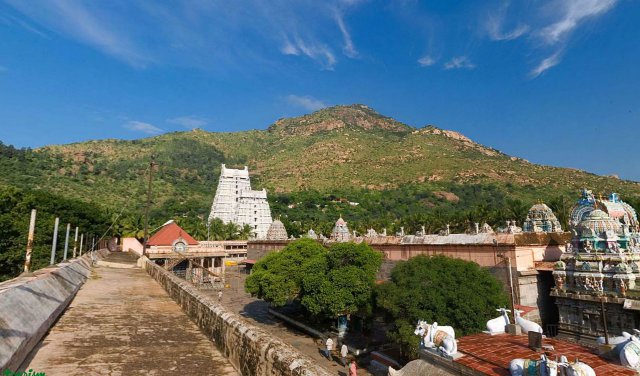At least six IT professionals and two students who allegedly took aerial visuals of the Tiruvannamalai hill using an Unmanned Aerial Vehicle (UAV) were arrested by the police on Sunday. The UAV was seized by the Tiruvannamalai Taluk police who released the accused on bail.
Flying UAV without prior permission of the competent authority is banned in Tamil Nadu.
The techies were employed in major IT firms in Chennai. Only a week ago, a UK national was accused of flying a UAV over the holy hill and the flying object was seized. The motive of these persons who sought to obtain aerial visuals of Tiruvannamalai hill and the famous Arunachaleswarar Temple was under investigation, police sources said.
The techies had purchased the UAV online at a cost of Rs. 1.20 lakh. Cyber experts were being roped in to analyse the visuals recorded in the gadget. On earlier occasions, UAV or drones were deployed by scientists of the Madras Institute of Technology (MIT) in association with the Tamil Nadu police for security arrangements during Karthigai Deepam festival when several thousands of people visit the temple.
3 students detained
On Sunday, three engineering graduates were detained by the police for flying a UAV in Perungudi area on Sunday. The trio told the police that the vehicle was launched to check preparatory arrangements ahead of a VIP visit to the area. Further investigation is on.
According to K. Senthil Kumar, Department of Aerospace Engineering, Madras Institute of Technology, flying UAV was permitted only for purposes approved by the Government. In the recent floods in Chennai, MIT scientists deployed UAVs at the behest of security agencies for relief and rescue operations.
The Director General of Civil Aviation had on October 7, 2014, banned the launch of Unmanned Aircraft Systems by any non-government agency, organisation or individual.
A DGCA circular stated that UAS had the potential of inviting a large number of civil applications. However, it also posed a security threat. The airspace over cities in India had high density of manned aircraft traffic. Due to lack of regulation, operating procedures/standards and uncertainty of the technology, UAS posed threat of air collisions.
Flying a UAV without prior permission of the competent authority is banned in Tamil Nadu
Source: The Hindu

